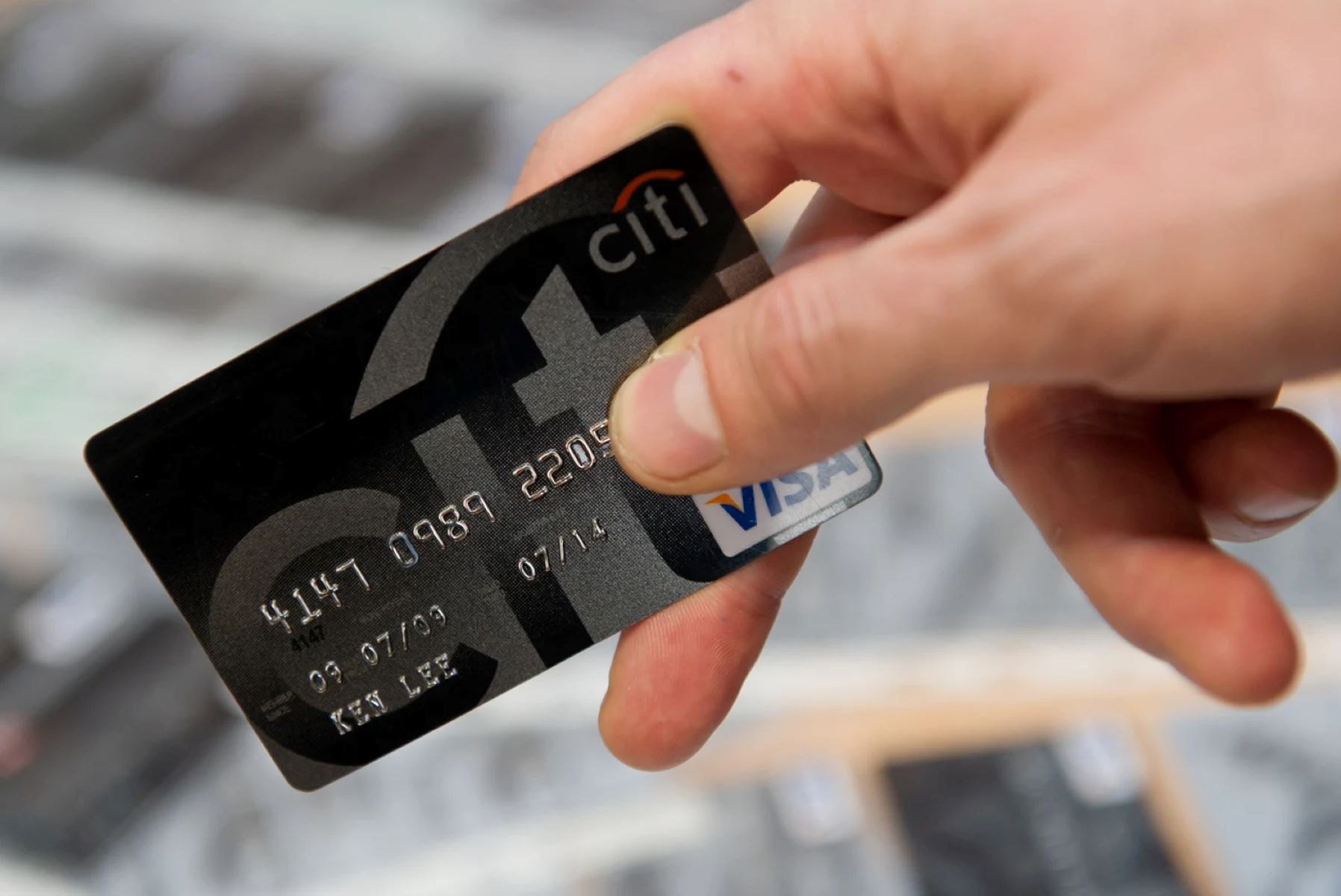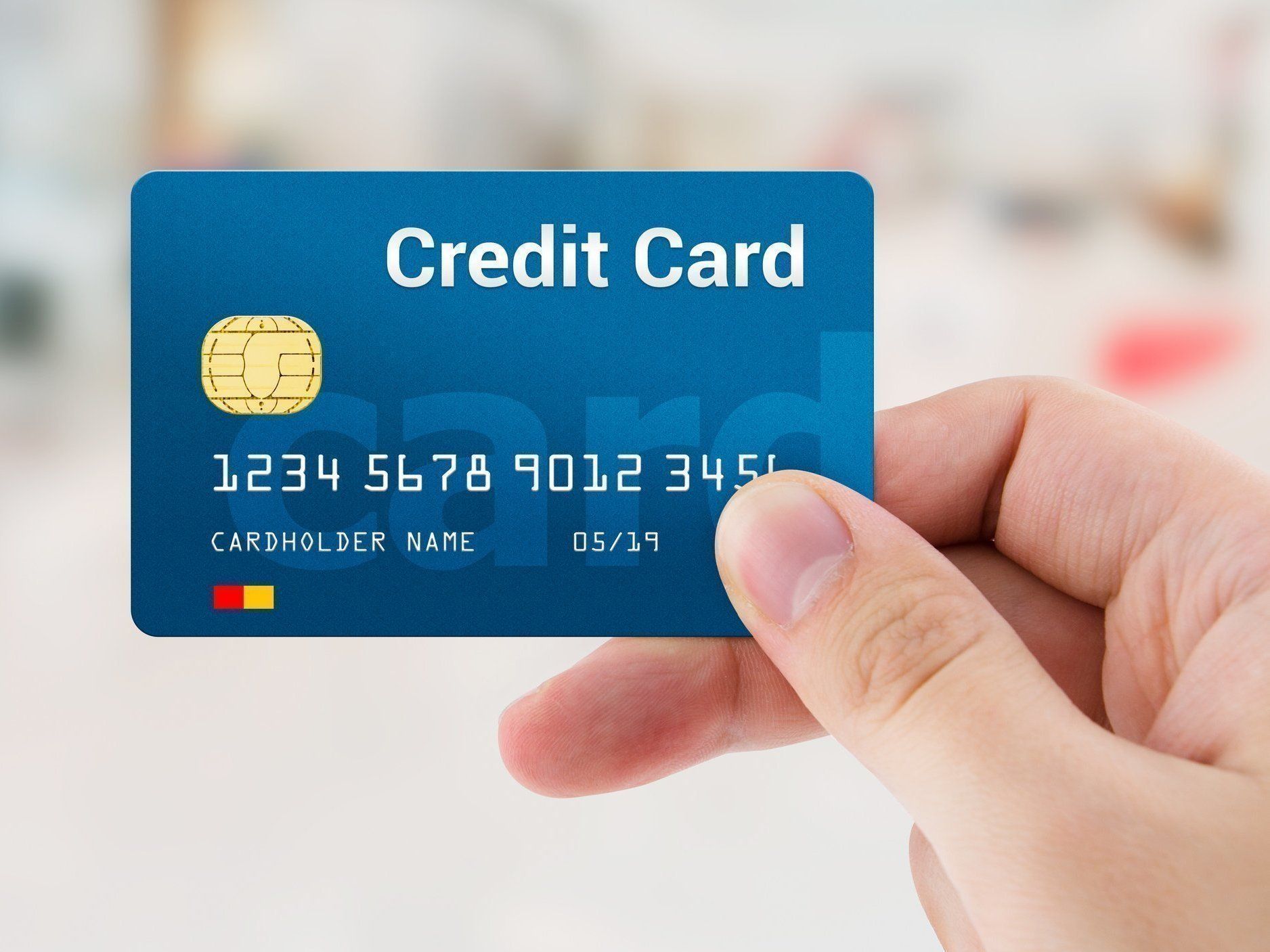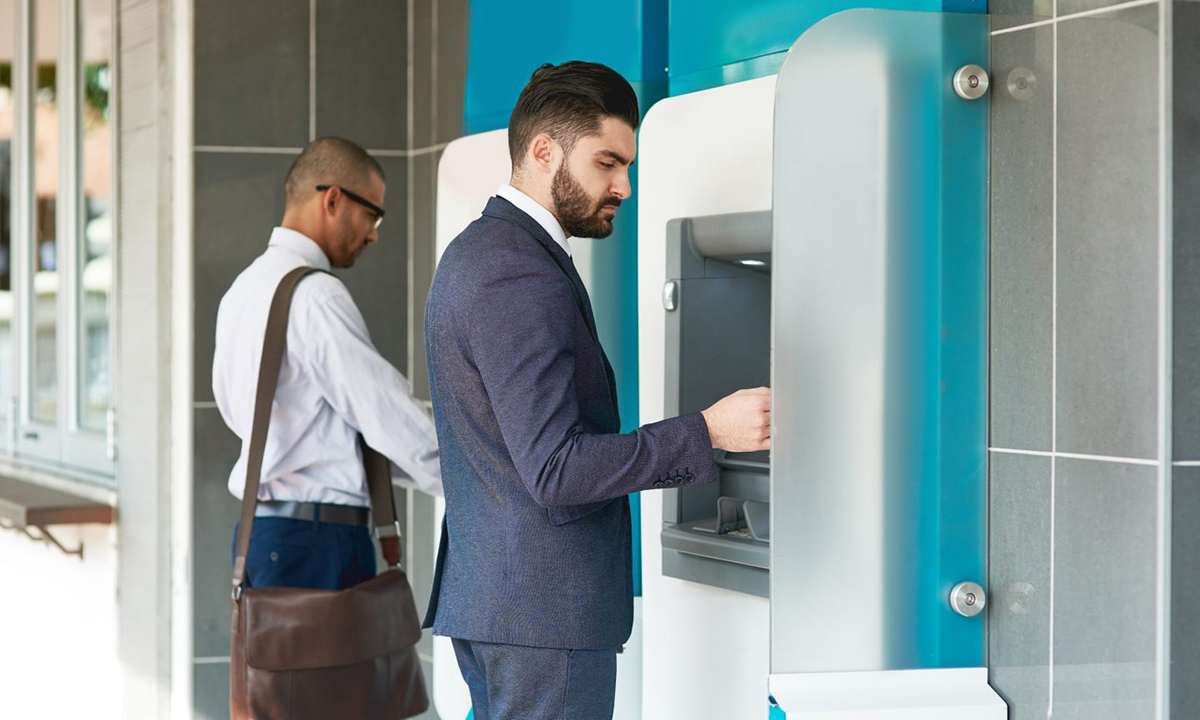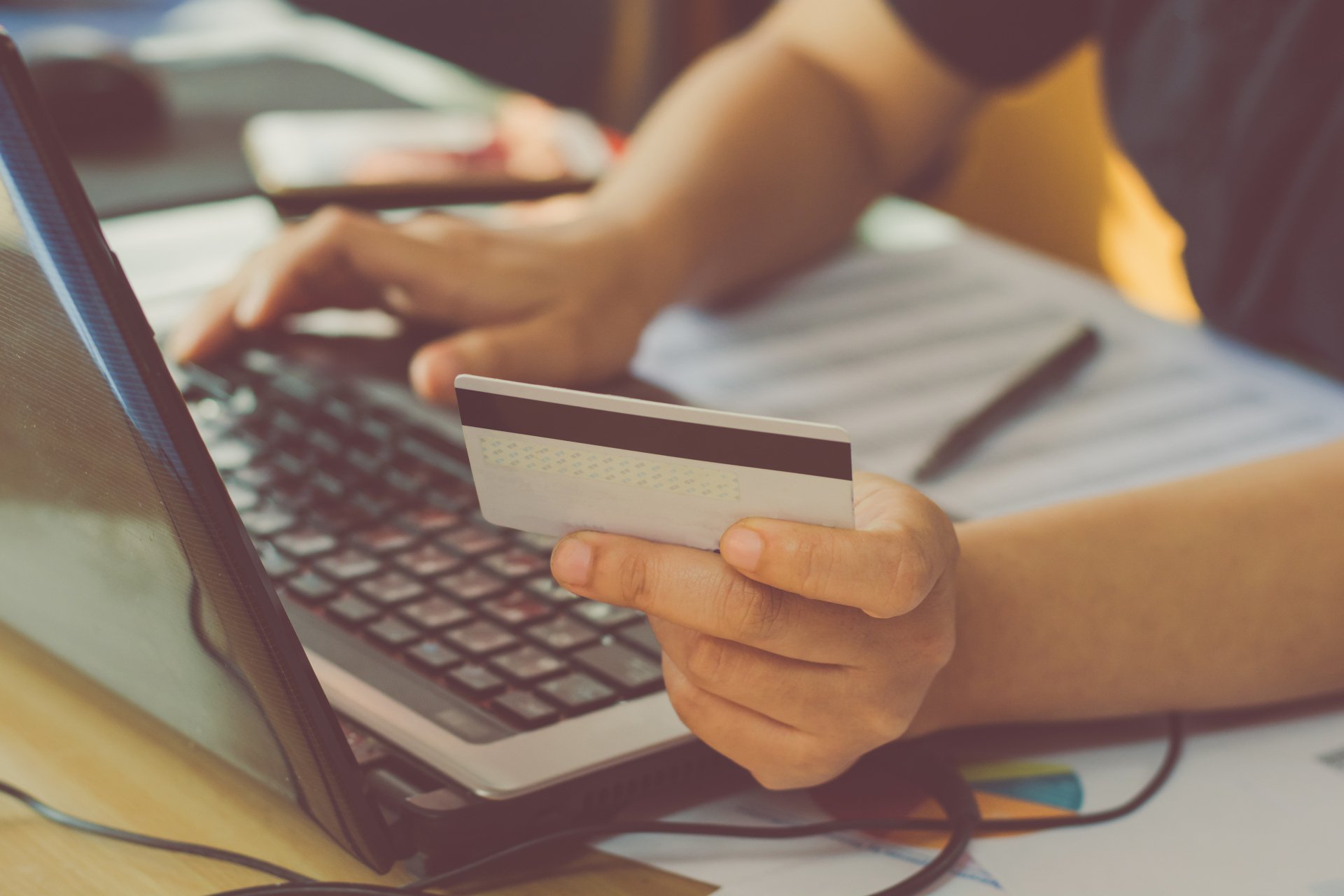Home>Finance>What Happens If You Don’t Activate A Credit Card


Finance
What Happens If You Don’t Activate A Credit Card
Published: November 8, 2023
Discover what happens if you don't activate a credit card and how it affects your finances. Learn about the implications of neglecting to activate your card and the importance of staying on top of your financial responsibilities.
(Many of the links in this article redirect to a specific reviewed product. Your purchase of these products through affiliate links helps to generate commission for LiveWell, at no extra cost. Learn more)
Table of Contents
Introduction
When you receive a new credit card in the mail, it’s an exciting moment. You eagerly tear open the envelope, holding the shiny plastic in your hands. However, before you can start using your new credit card to make purchases, there is an important step you must take: activating it.
Activation is the process of confirming that you have received the card and are ready to begin using it. It typically involves either calling a phone number provided by the credit card issuer or visiting their website to complete the activation process. While it may seem like a hassle or an unnecessary step, failing to activate your credit card can have consequences that you may not anticipate.
In this article, we will explore why activating a credit card is important and the potential repercussions you may face if you neglect to do so. Understanding these implications will help you make informed decisions and take the necessary steps to ensure a smooth credit card activation process.
Why Activate a Credit Card?
You may be wondering why it is necessary to activate your credit card if you have already received it in the mail. Here are some important reasons why you should complete the activation process:
- Security: Activation adds an extra layer of security to your credit card. It helps verify that the card has been received by the rightful owner and minimizes the risk of someone else using it fraudulently.
- Confirmation: Activating your credit card confirms that you have received it and are ready to start using it for purchases. It signals to the credit card issuer that you are the authorized user and prevents any delays or issues when you want to make transactions.
- Access to Rewards and Benefits: Many credit cards offer rewards programs or exclusive benefits for cardholders, such as cash back, airline miles, or access to airport lounges. Activating your card ensures that you can start taking advantage of these perks right away.
- Building Credit: One of the main reasons people obtain credit cards is to build their credit history. By activating your credit card and using it responsibly, you can establish a positive credit history, which can be beneficial when applying for loans, mortgages, or other types of credit in the future.
In summary, activating your credit card is essential for security, convenience, and access to the benefits and rewards offered by credit card issuers. It is an important step in establishing and maintaining a healthy credit profile.
Consequences of Not Activating a Credit Card
While it may be tempting to set aside the activation process and simply use your credit card without completing it, there are several potential consequences that you should be aware of:
- Inability to Make Purchases: The most immediate consequence of not activating your credit card is that you will not be able to use it to make purchases. Any attempt to use the card at a physical store, online, or over the phone will likely be declined, as the card remains inactive in the issuer’s system.
- Missed Rewards and Benefits: Many credit cards offer rewards programs, cash back, or airline miles that can be earned with every purchase. By not activating your credit card, you risk missing out on these valuable rewards and benefits.
- Potential for Fraud: Unactivated credit cards can still be vulnerable to theft or unauthorized use. If your card is lost or stolen, and it has not been activated, you may face challenges in reporting the incident to the credit card issuer and potentially be held liable for any fraudulent charges.
- Delayed Fraud Protection: Credit card issuers typically offer robust fraud protection for their cardholders. However, if your credit card is not activated, you may experience delays in reporting fraudulent charges and receiving reimbursement for any unauthorized transactions.
- Negative Impact on Credit Score: Your credit score is an essential factor that lenders consider when evaluating your creditworthiness. Failing to activate your credit card and using it responsibly can prevent you from establishing a positive credit history, which may negatively impact your credit score in the long run.
Therefore, not activating your credit card can lead to missed opportunities, increased vulnerability to fraud, potential liability for unauthorized charges, and hindered credit-building efforts. To avoid these consequences, it is crucial to activate your credit card as soon as you receive it.
Loss or Theft of an Unactivated Credit Card
When you receive a new credit card, it’s essential to activate it promptly to protect yourself from potential loss or theft. Here’s why:
If your unactivated credit card is lost or stolen, it can still pose a risk. Even though you haven’t activated the card, there are thieves who could potentially access your personal information and use it for fraudulent purposes. This puts your identity and finances at risk.
Additionally, if someone finds your unactivated credit card and attempts to use it, you may face difficulties in reporting the unauthorized transactions. Credit card issuers typically have established protocols for handling loss or theft of activated cards, but the process may be more challenging if the card is still inactive. You may have to provide additional proof or documentation to show that the card was not used by you.
In the event of an unactivated card being lost or stolen, it is crucial to contact your credit card issuer immediately. They will guide you on the necessary steps to protect yourself and mitigate any potential damage. This may include canceling the unactivated card, monitoring your accounts for any suspicious activity, and potentially issuing a new card.
Remember, activating your credit card as soon as you receive it adds an extra layer of security. It ensures that you are the authorized user and helps protect you from unauthorized transactions or fraudulent activity. By activating your card promptly, you can minimize the risk of loss or theft and take control over your credit card’s security.
Impact on Credit Score
When it comes to your credit score, every action—or inaction—can have an impact. Failing to activate your credit card can potentially affect your credit score in a number of ways:
Lack of Credit Utilization: Credit utilization is a significant factor in determining your credit score. It refers to the percentage of your available credit that you are currently using. By not activating your credit card, you effectively have a credit limit of zero, which can negatively impact your credit utilization ratio. Maintaining a low credit utilization, typically below 30%, is considered favorable for your credit score.
Missed Payment History: One of the most crucial elements of your credit score is your payment history. By not activating your credit card and using it responsibly, you miss out on the opportunity to demonstrate a positive payment history. Timely payments and regular credit card activity can help build a strong credit history and improve your credit score over time.
Lack of Credit Mix: Credit mix refers to the various types of credit accounts you have, such as credit cards, mortgages, or auto loans. Having a diverse credit mix can positively impact your credit score. However, if you fail to activate your credit card, you are limiting your credit mix and potentially missing out on an opportunity to enhance this aspect of your credit profile.
Length of Credit History: The length of your credit history is also a vital factor considered in credit scoring models. The longer you have had credit accounts in good standing, the more favorably it reflects on your credit score. When you leave a credit card unactivated, it delays the start of your credit history with that particular account.
Overall Credit Health: In general, neglecting to activate your credit card and use it responsibly may indicate to lenders that you are not actively managing your credit. This can have a negative impact on your creditworthiness and potentially lower your credit score.
While the exact impact may vary depending on other factors affecting your credit score, it’s important to recognize that not activating your credit card can hinder your ability to build a positive credit history and potentially have a negative impact on your credit score over time. By activating your card and using it responsibly, you can take steps towards maintaining a healthy credit profile.
Effect on Rewards and Benefits
One of the key advantages of credit cards is the rewards and benefits they offer to cardholders. However, if you fail to activate your credit card, you may miss out on these valuable incentives. Here’s how not activating your credit card can affect the rewards and benefits:
Cash Back and Rewards Programs: Many credit cards offer cash back or rewards programs where you earn points or cash for every purchase you make. By not activating your credit card, you won’t be able to start accumulating rewards or cash back on your transactions. This means you will be missing out on potential savings or freebies that could have been earned through your credit card usage.
Airline Miles and Travel Benefits: Some credit cards are specifically designed for frequent travelers. These cards often offer airline miles or travel benefits such as free checked bags, airport lounge access, or discounts on travel purchases. Not activating your credit card means you won’t be able to take advantage of these travel perks, potentially missing out on valuable savings and travel enhancements.
Special Offers and Promotions: Credit card issuers frequently provide exclusive deals, discounts, or limited-time promotions to cardholders. By not activating your credit card, you won’t receive notifications or access to these special offers. This could mean missing out on significant savings or unique opportunities available to cardholders only.
Extended Warranties and Purchase Protections: Some credit cards provide extended warranties, purchase protection, and other valuable consumer protections on eligible purchases made with the card. If you do not activate your credit card, you will forego these additional benefits, potentially leaving yourself vulnerable to unexpected repair costs or loss.
It is important to activate your credit card as soon as you receive it to ensure you can start taking advantage of these rewards and benefits. Activate and understand the terms and conditions of your credit card to maximize its potential and make the most of the valuable incentives it offers.
Fraud Protection and Liability
One of the primary concerns when it comes to credit cards is the potential for fraud and the associated liability. Activating your credit card is essential not only for accessing its benefits but also for the robust fraud protection offered by credit card issuers. Here’s how activating your credit card can help safeguard you:
Rapid Fraud Detection: Credit card issuers have advanced systems to detect and prevent fraudulent activity. When you activate your credit card, you establish a direct connection with the issuer’s monitoring systems. This allows them to promptly detect and notify you of any suspicious transactions, potentially preventing further fraudulent activity.
Zero Liability Policy: Most credit card issuers have zero liability policies in place, meaning you are not held responsible for unauthorized charges made on your credit card. However, to avail of this protection, you must activate your credit card and report any fraudulent activity promptly.
Timely Reporting: Activating your credit card enables you to monitor your account and ensure that you can promptly report any unauthorized transactions. By failing to activate your card, you delay your ability to identify and report fraudulent activity, potentially complicating the resolution process and increasing your liability.
Dispute Resolution: Credit card issuers usually have established protocols for handling disputes related to unauthorized charges or fraudulent activity. By activating your credit card, you ensure that you can access these resources and receive appropriate support in resolving any fraudulent issues that may arise.
Additional Security Measures: Some credit cards offer additional security features, such as two-factor authentication, which adds an extra layer of protection to your account. Activating your credit card is often a prerequisite for enabling and utilizing these advanced security measures.
It is important to note that while credit card issuers provide robust fraud protection, you also have a responsibility to safeguard your credit card and personal information. Activate your credit card promptly, regularly review your transactions, and report any suspicious activity to your credit card issuer to maximize the effectiveness of fraud protection measures.
How to Activate a Credit Card
Activating a credit card is a straightforward process that can be completed in a few simple steps. While the exact activation method may vary depending on the credit card issuer, here are some common methods to activate your credit card:
- Activate online: Many credit card issuers provide online activation options. Visit the credit card issuer’s website and look for the activation section. You will likely be prompted to enter your card details, personal information, and follow any additional instructions provided.
- Activate over the phone: Most credit card issuers provide a phone number specifically for card activation. Look for this number on the sticker or letter that came with your credit card. Call the number and follow the automated or representative-guided instructions to activate your card.
- Mobile app activation: Some credit card issuers offer mobile apps that allow you to manage your credit card account, including activation. Download the issuer’s mobile app, log in or create an account, and navigate to the activation section within the app.
- Activation via mail: In some cases, credit card issuers may provide a mail-in activation option. You will typically receive an activation form or instructions in the mail along with the credit card. Fill out the form as directed and return it via mail to activate your card.
- Automatic activation: Some credit cards may come with automatic activation, where the card becomes active as soon as it is physically used for a purchase. However, it is still essential to check for any activation instructions to ensure the card is activated properly.
Remember, it is crucial to follow the specific activation instructions provided by your credit card issuer. These instructions will guide you through the process and ensure your card becomes active and ready for use. If you encounter any issues or have questions, reach out to the credit card issuer’s customer service for assistance.
Conclusion
Activating your credit card may seem like a minor task, but it is a critical step in the process of using and maximizing the benefits of your credit card. Failing to activate your credit card can lead to various consequences, including the inability to make purchases, missed rewards and benefits, heightened fraud vulnerability, potential liability, and a negative impact on your credit score.
By activating your credit card, you not only ensure its security and confirm your intention to use it but also gain access to the rewards and benefits offered by the credit card issuer. Additionally, activating your card enables robust fraud protection measures, such as timely fraud detection, a zero liability policy, and efficient dispute resolution.
To activate your credit card, follow the specific instructions provided by your credit card issuer, whether it’s through online channels, over the phone, mobile apps, or by mail. By completing the activation process, you take control of your credit card and maximize its potential in building a positive credit history, earning rewards, and enjoying the perks that come with responsible credit card usage.
Remember, activating your credit card is just the beginning. It is equally important to use your credit card responsibly, make timely payments, and monitor your account for any unauthorized activity. By doing so, you can make the most of your credit card while protecting yourself from fraud and building a strong financial foundation.














